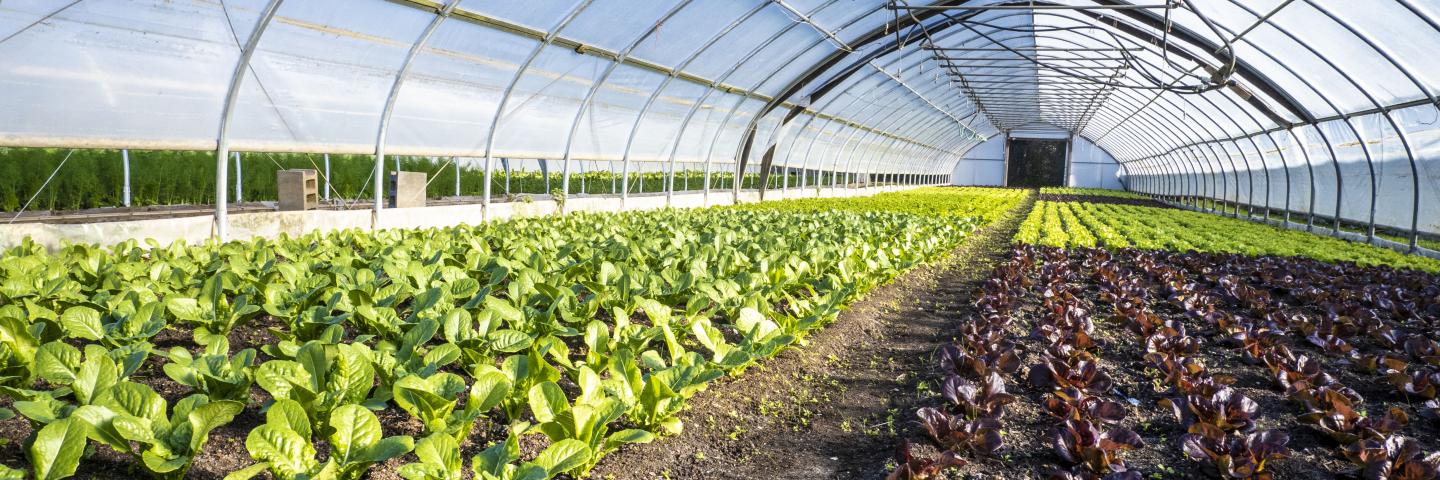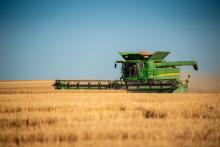
High tunnels protect plants from severe weather and allow farmers to extend their growing seasons – growing earlier into the spring, later into the fall, and sometimes, year-round.

We have really cold, wet springs with a lot of rain. High tunnels allow people to get into the ground and start producing crops earlier. They can also help people extend the growing season later as we go into the rains in the fall.
Across the U.S., farmers are discovering the benefits of high tunnels. NRCS can help producers integrate high tunnels into their operations and provide financial assistance through the Environmental Quality Incentives Program (EQIP).
While they may look like greenhouses, high tunnels are actually quite different. Greenhouses are usually constructed of glass and metal, with plants grown in pots above the ground. High tunnels are polyethylene, plastic or fabric covered hoop structures that can be assembled for a fraction of the cost, with plants grown in raised beds or grown directly in the ground.
Because the growing conditions are controlled, plant health is optimized. High tunnels protect plants from severe weather and allow farmers to extend their growing seasons – growing earlier into the spring, later into the fall, and sometimes, year-round. And because high tunnels prevent direct rainfall from reaching plants, farmers can use precise tools like drip irrigation to efficiently deliver water and nutrients to plants. High tunnels also offer farmers a greater ability to control pests and can even protect plants from pollen and pesticide drift.
A number of soil health practices can be used in high tunnels, including cover crops and crop rotations, which also prevent erosion, suppress weeds, increase soil water content, and break pest cycles.
Perhaps the best thing about high tunnels is that they help farmers provide their communities with healthy local food for much of the year – food that requires less energy and transportation inputs and provides communities with greater food security.
Benefits of High Tunnels
- Extend growing season
- Improve plant and soil quality
- Reduce nutrient use and pollen and pesticide drift
- Reduce energy use and improve air quality by providing consumers with a local produce
Read our high tunnel success stories.
Watch short videos from our Conservation at Work series about high tunnel and micro-irrigation.

We got high tunnel assistance from NRCS and it’s completely changed the way we farm tomatoes. We are able to get 103 tomato plants in there. Before we would do maybe 40. We’re also able to grow things during the winter, which we’ve never been able to do before. We’re even able to grow things in the winter, which we’ve never been able to do before.




